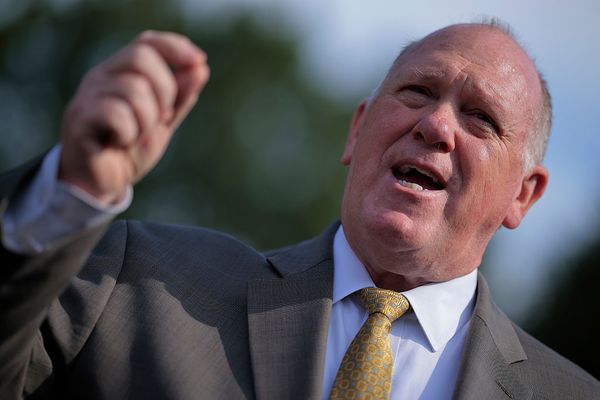
Mayor Brandon Johnson risked another political backlash this week when he referred to the recent looting of a South Loop convenience store as a teen “trend” — not a “mob action” — and said it was inappropriate to “refer to children as...baby Al Capones.”
But Ald. Jessie Fuentes (26th) couldn’t agree more.
In fact, she’s lived and overcome those stereotypes as the child of two drug-addicted parents. Her father went to prison on drug and weapons charges when she was six years old. She left home at 15 and moved in with a friend to escape her emotionally broken home.
Now a rising star in Chicago’s progressive City Council, Fuentes shared her inspirational story Thursday in hopes it will blaze a positive trail for young people.
“I had pain and turned it into propane and just became an activist. I got lucky to have people who introduced me to a world of organizing and movement. It was a world that I had fallen in love with because that had become a place where I engaged in a process of healing,” Fuentes told the Sun-Times.
“I was lucky to stumble upon a small alternative school that took the time to invest in me and … provide the social and emotional support that I needed to overcome. ... I was politicized in high school and I took a lot of that anger and a lot of that concern around drug addiction to combat it at a systemic level to be able to take on systems of racism and oppression that cause one to be addicted to drugs in the first place.”
Fuentes’ own criminal record was the subject of a negative mailer by one of her aldermanic challengers, bankrolled by the Fraternal Order of Police.
It talked about how she had been expelled from Schurz High School after getting into a fistfight with another student who made a snide comment about her mother’s drug addiction.
The voters didn’t buy it.
By that time, Fuentes had developed her own street cred as a community activist and dean of students at Dr. Pedro Albizu Campos High School, the alternative school she credits with “turning my life around.”
That was followed by a stint at Roberto Clemente Community Academy, where Fuentes became a champion for troubled young people.
“If someone like me with a juvenile and early adult record as long ago as it was — over a decade — was ineligible to be an elected official, then what are we telling every young person that, in this moment, needs hope? ... That mailer was telling the entire ward that every young person that makes a mistake is unworthy,” Fuentes said.
Which is precisely why Fuentes is “100% aligned” with Johnson about the danger of “demonizing” young people by creating “narratives they’re further going to internalize … about who people believe they are.”
In fact, she plans to use the position the mayor gave her as head of a new Youth Sub-Committee of the City Council to create year-round jobs for young people, year-round programming in their neighborhood schools and “talk about resources and centers we want to put in their communities so they can experience joy and happiness and engage in productive activity.”
“It’s really about taking a look at … why the city is in the place that we are in and how do we intentionally begin to change that narrative and invest in their spaces?” she said.
Yet another piece of the puzzle is Treatment Not Trauma — the campaign to re-open Chicago’s shuttered mental health clinics and create a citywide, non-police response to mental health emergencies.
How can Chicago afford to deliver on one of Johnson’s signature campaign promises?
Fuentes believes at least part of the answer is to eliminate 1,700 vacant CPD positions that have remained unfilled.
“Those vacancies have existed for a while. We have not been able to fill those vacancies. … We have not kept up with retirement. … The question is, do we continue to fund vacancies that we cannot fill,” Fuentes said.
“It’s not me wanting to close … a number of positions. It’s are we going to continue to fund vacancies that we have not been able to fill? Is it financially sound and intelligent to continue to [hold open] positions that no one is taking?”
Yet another progressive promise is to raise the real estate transfer tax on high-end home sales to create a dedicated funding source to combat the homelessness Fuentes experienced.
Fuentes said she expects Chicago real-estate interests to mount a big-money campaign against that binding referendum. But she has no doubt it will pass.
“I am not going to claim that we’re gonna be able to raise more money than the real estate industry because it’s not real. But the one thing we do is meet our people where they’re at and knock on their doors,” she said.







